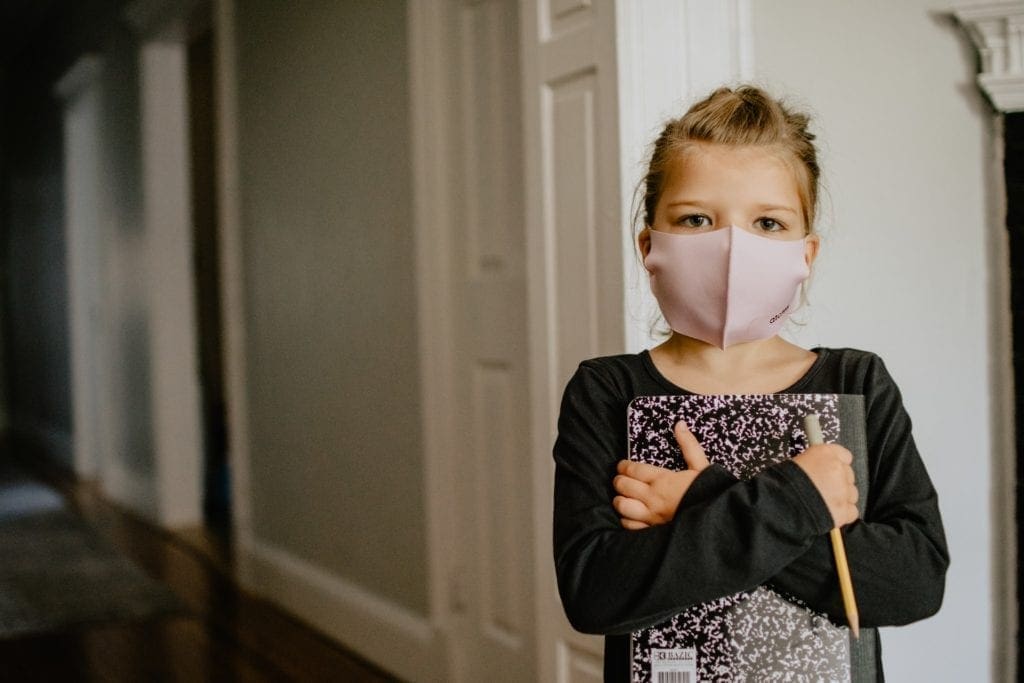Impact of COVID-19 on child sexual exploitation and abuse online

WeProtect Global Alliance – Briefing
This briefing paper brings together and assesses the currently available material on the impact of COVID-19 restrictions on online child sexual exploitation.[footnote]COVID-19 has now been declared a global pandemic, with immediate and far-reaching consequences for parents, carers and children themselves. For a wider perspective on COVID-19 pandemic and its implications see ‘Protecting Children During The COVID-19 Outbreak’ (EVAC)[/footnote]
Summary findings
- It is highly probable that numbers of online child sexual exploitation (OCSE) cases will increase during the period of COVID-19 restrictions.
- Greater unsupervised internet use means children are likely to be exposed to greater risk of sexual exploitation online, including sexual coercion, extortion and manipulation by offenders. Exchange of self-generated material is also likely to increase, as children are now experiencing most of their social lives only online.
- The increase in the numbers of emotionally vulnerable children poses greater risk for increased grooming by offenders.
- Isolation due to COVID-19 is likely to increase the probability of offenders acting on their impulses.
- Economic hardship and the inability of offenders to travel due to COVID-19 lockdown is likely to increase the potential for livestreaming abuse in home environments. Livestreaming is also likely to increase due to the higher production of self-generated sexual content by children themselves.
- COVID-19 restrictions are disrupting reporting services, with current systems still reliant on human moderation.
- The current focus within governments and law enforcements on COVID-19, and disruption caused by associated protective measures, are leading to lower prioritisation of online child sexual exploitation in many jurisdictions.
Growth in child sexual exploitation online cases during lockdown
- The global COVID-19 pandemic and associated restrictive measures, have disrupted millions of lives, including those of our children. We assess that the current environment has exacerbated existing drivers of online child sexual exploitation
- Specialist cybersecurity company Web-IQ has revealed that between February 2020 and the end of March 2020 there has been an increase of over 200% in posts on known child sex abuse forums that link to downloadable images and videos hosted on the clearnet
Key risk factors for children during COVID-19 pandemic
- The impact of the Coronavirus lockdown has caused both children and those seeking to offend to spend more time online . We assess the following to be key areas of risk:
- Higher level of emotional vulnerability:
- Research from the National Society for the Prevention of Cruelty to Children (NSPCC) has shown how abusers will often target children who have shown vulnerability online
- Lack of caregiver supervision: COVID-19 lockdown has meant that millions of people worldwide are now based primarily at home. As of 3 April 2020, school closures due to COVID-19 were impacting more than 90% of the world’s school population
Offenders attitudes
- We judge that offenders will seek to exploit the COVID-19 lockdown to carry out abuse online. Although it is difficult at this stage to assess exact variations and changes in the offenders patterns of behaviour, some early qualitative evidence has started to emerge:
- Impact of stress variation factors: Offenders are usually more likely to offend when their lifestyle is affected by a significant change[footnote]A. Burrows (NSPCC), Personal Communication, April 27th, 2020[/footnote]. In addition, there is operational evidence that many of the members of online websites and forums displaying CSAM do not have significant social support outside these platforms. Therefore, we assess that confinement due to COVID-19 could represent the trigger factor that will lead more offenders to increase or initiate illegal activity online. Recent data from the Lucy Faithfull Foundation show that in the two weeks after lockdown started in the UK there has been a 41% increase in users of the “Get Help” section of their Stop It Now! website (created for those with concerns about their own sexual behaviour towards children), with a total percentage of new users rising from 26% prior to 64% after lockdown[footnote]‘Impact Of The Coronavirus On Stop It Now Websites’ (The Lucy Faithfull Foundation, April 2020), D. Findlater correspondence with WePROTECT Global Alliance, May 2020[/footnote].
- Grooming ahead of planned travel: According to ECPAT, some offenders are likely to use the opportunity given by COVID-19 confinement to groom children online today with the prospect of visiting them to carry out abuse once travel restrictions have been eased[footnote]ECPAT, op. cit.[/footnote].
- Potential for increase in live streaming: As a significant amount of CSE live streaming is usually done from home environments (96% of live streamed abuse investigated by the Internet Watch Foundation (IWF) showed a child on their own, in a home environment
Impact on response measures
- In addition to the difficulties in reporting encountered by those children who are now trapped with their offenders
Resources for further action
- The Global Partnership to End Violence Against Children (EVAC) has provided resources
This briefing was compiled by Laura Taddei (Chief of Staff for Baroness Joanna Shields).
Page last updated on 14th November 2024